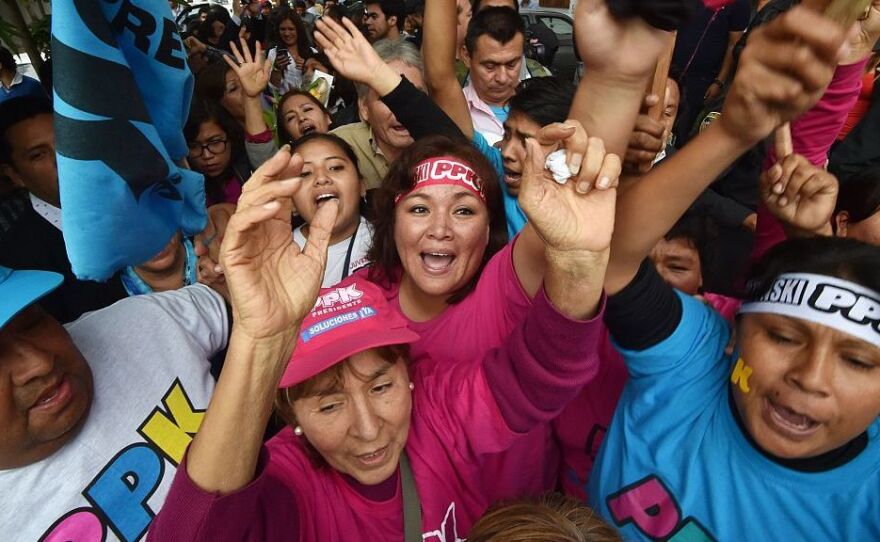In Peru, Keiko Fujimori has conceded defeat to her rival Pedro Pablo Kuczynski in the country's closest presidential election in decades.
Fujimori, who is center-right, is the daughter of ex-President Alberto Fujimori — now imprisoned for human rights abuses during his time in office. President-elect Kuczynski, a former investment banker, is also viewed as conservative.
As The Associated Press reported, "with 100 percent of ballots in, Kuczynski won 50.1 percent to Fujimori's 49.9 percent." Fujimori had been favored to win in the runoff but "lost ground during the final stretch."
Kuczynski had declared victory on Thursday, The New York Times reported.
During Fujimori's concession speech, according to the wire service, she said "she and her majority congressional bloc will lead a responsible opposition to President-elect Kuczynski. She also accused the media Friday of promoting what she called a hate campaign against her candidacy."
The figure of Alberto Fujimori loomed large over this vote. As Reuters reported, Keiko Fujimori was the favorite to win "thanks in part to the popularity of the family name in provinces where his government built schools and cracked down on the bloody Shining Path insurgency." The wire service adds:
"On the campaign trail, she tried to distance herself from her father and criticized him for ordering the military to shutter Congress in 1992. But she never acknowledged he committed any crimes."
And during the campaign, Kuczynski warned "that the corruption and criminality associated with her father's authoritarian rule could return if she were elected," according to the AP.
Back in April ahead of the first round of voting, All Things Considered host Michel Martin asked journalist Simeon Tegel in Lima whether this election could be viewed as a referendum on Alberto Fujimori's tenure. This is what he had to say:
"I think to a certain degree it is, though it's also interesting Peru is a relatively young country. A lot of voters weren't adults during the 1990s when Fujimori was in charge, so his legacy is really probably the central issue. But people are also looking forward. Another big issue is the economy here. There is a broad consensus within Peru that the free market is the way to go."
Copyright 2016 NPR. To see more, visit http://www.npr.org/.






